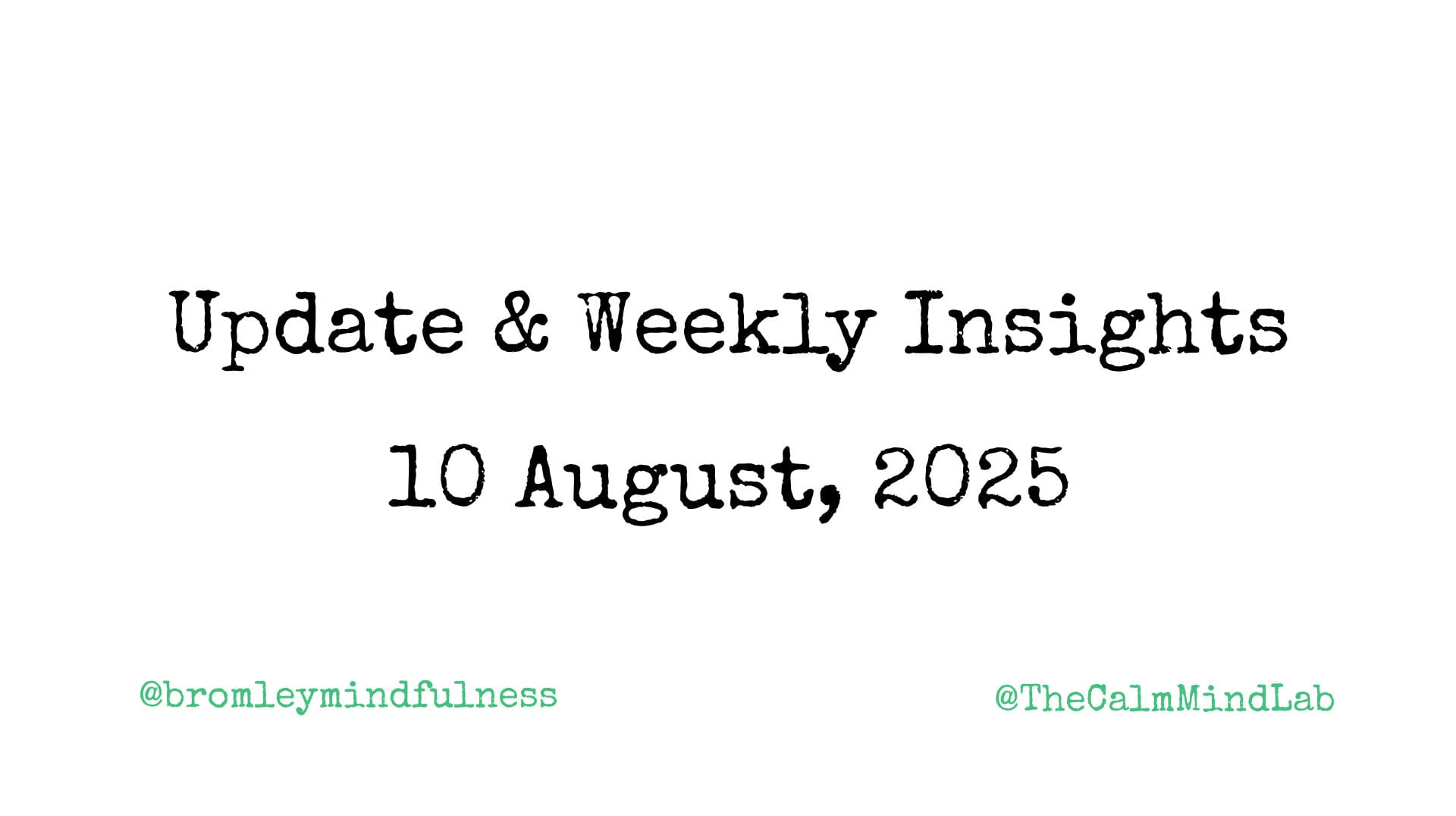Hi everyone,
In this week's Weekly Insight article:
- About the new website
- Accessing the live meditation classes
- Meditation Myth: "Just Let Go of The Thoughts"
- Worry is all about time
- Looking for calm, clarity, or a reset?
- The Meditation Toolkit
I am in the process of migrating to the new website. Previous visitors will notice the changes.
The new site provides a cleaner, simpler look while still providing a way to make all of the courses, podcasts, class recordings, articles and weekly insights available.
I'll be working to move the files over during the next few weeks and I will keep you updated in the weekly insights what becomes available.
If you encounter any issues accessing content, please let me know through the contact options:

Accessing the live group-guided meditation Zoom links
For those of you on the paid subscription, you can now access the links for the classes by clicking on the classes and courses menu item in the top menu navigation, and then clicking on "Live Classes" where you can select the relevant day and find the Zoom link.
Please let me know if you encounter any issues.
Meditation Myth: "Just Let Go of The Thoughts"
Have you ever heard the "Just notice your thoughts and let them go" narrative?
It's like telling someone in a storm to "just ignore the wind and rain."
Fleeting surface thoughts may sometimes drift away easily, but the deep, persistent thoughts about your career, relationships, or worries carry emotional weight, momentum, and inertia. It can be like trying to get chewing gum off your shoe.
Most meditation advice online (and what AI regurgitates) comes from a simplified, one-size-fits-all approach. But meditation is a toolbox where we can use different strategies on different days. On calm days, thoughts might float past like the clouds. On tough days, we need a toolkit that works to help us refocus.
Once you have learned these skills and integrated them into daily life, meditation becomes part of your life and feels as natural as breathing—but first, you need to learn what actually works through trial and error over time.
In time, I believe most of us can become familiar and comfortable with our minds, and then the negative power of thoughts becomes neutralised.
If you don't live on the edge of your comfort zone, it shrinks

Worry is all about time
Worry arises because we perceive our most likely futures as fixed in the same way the past is perceived to be fixed. We view it as a path that we walk along.
The present moment becomes something to get out of the way so we can get to the future.
There's a sense of certainty about the future. And if that certainty is certainty of an uncomfortable future, then we dwell on it. This is worry.
So the mind can dwell in an uncomfortable future, which is a symptom of not being able to return our attention and awareness to the present moment long enough to break the cycle of worry!
Mindfulness meditation is a way of training our subconscious through gentle repetition to return our awareness to the present moment.
Gratitude meditation and gratitude practices allow us to find appreciation and acceptance of our experiences in the present moment, so that we don't dwell on the future.
We need patience as this training takes time, but it is time well spent.
🧩 ✨ Looking for calm, clarity, or a reset?
There's an online meditation class or course for everyone at Bromley Mindfulness and The Meditation Course.
🏛️ Prefer structure?
The next 5-week Mindfulness Meditation Course starts
- 📅 Tuesday 23rd September
- 🕖 7--9 PM (UK)
- 🧠 5 weeks to learn a simple, science-based meditation system that works.
🙆♀️ Prefer flexibility?
Join our online drop-in Meditation Course here at The Meditation Course
🌐 Four live group-guided meditation classes each week on Zoom, self-paced, practical, and down-to-earth.
💬 Any questions? Message me any time
Click below to subscribe - first month free - easy unsubscribe
The Meditation Toolbox (without meditating!)
✨ If meditation practices work while you are meditating — to calm your mind or relax, for example — then whatever they work for should also allow you to use them in your daily life.
And without practising much meditation!
That is actually the case, though it does not seem to be recognised. 👀
🧠 Many of the “brand-new” scientific tools that various therapists use, like cognitive defusion and Breathwork, are actually Yogic and Buddhist labelling practices and pranayama — thousands of years old and rooted in meditation.
👥 I have a number of students who have been with me for a decade or more, who attend my classes quite regularly. Not for the meditation, but to learn the practices and understand how the practices work.
I hope you found this week's weekly insight instructive and useful. Please do contact me if you have any questions.
Robert


